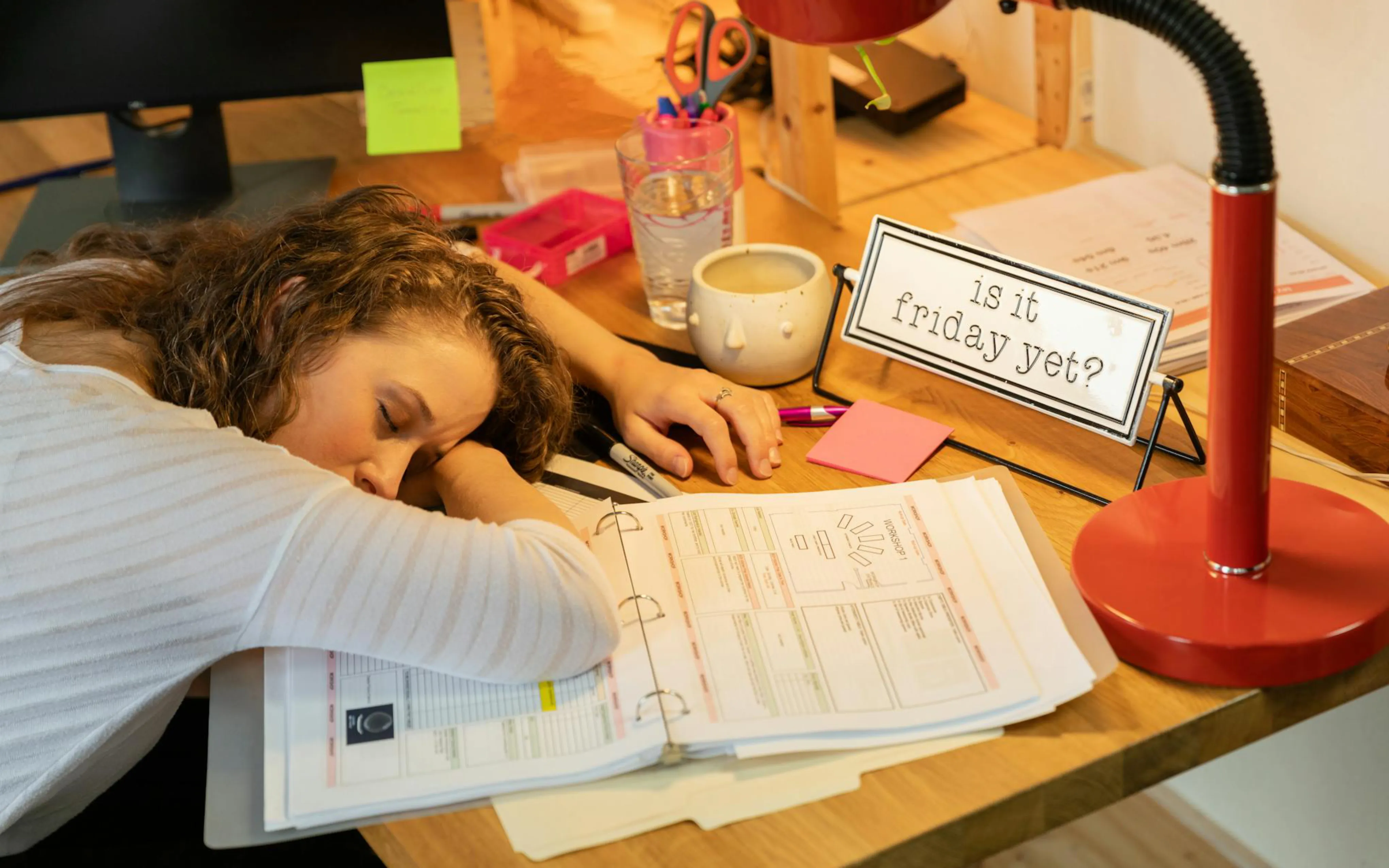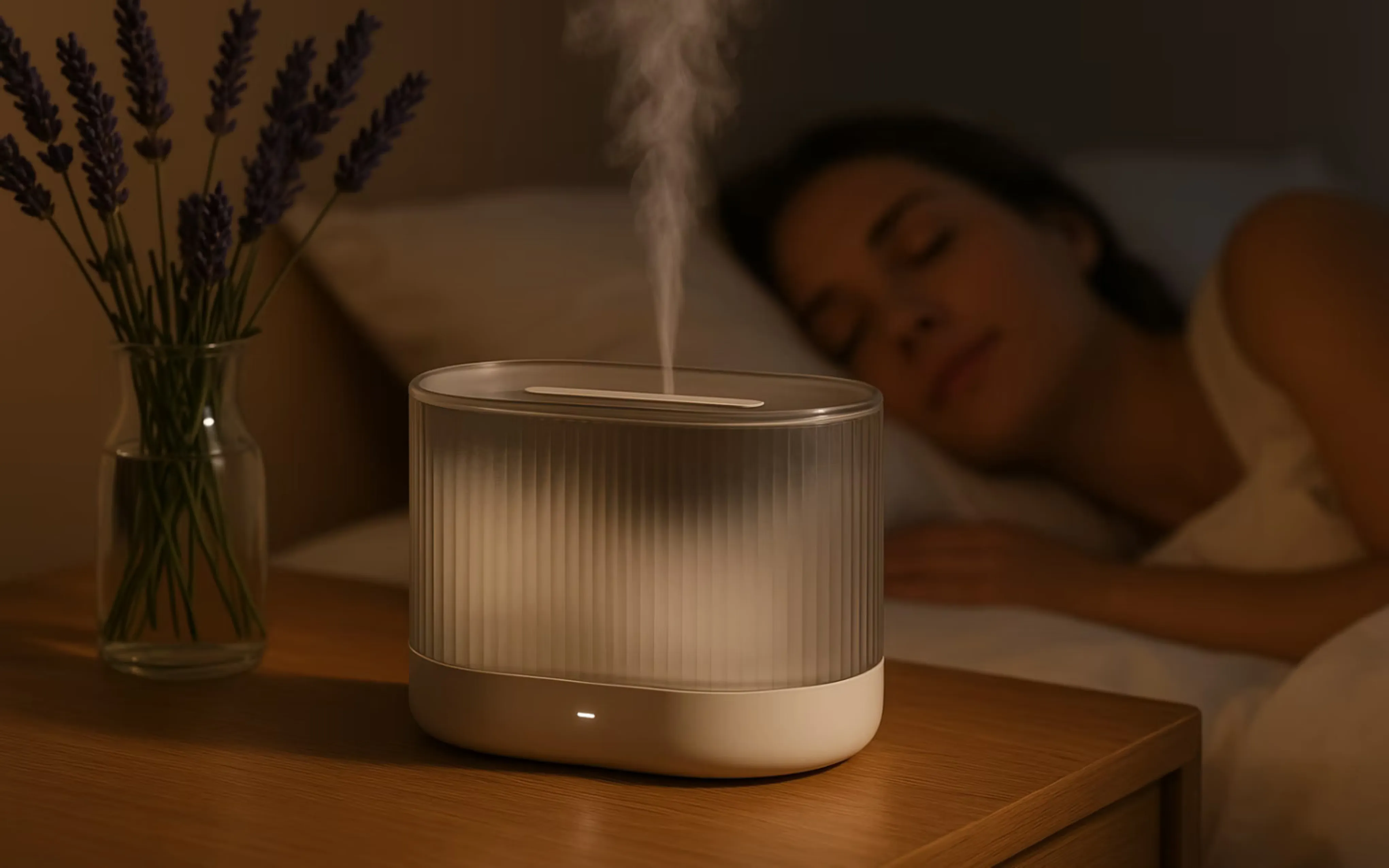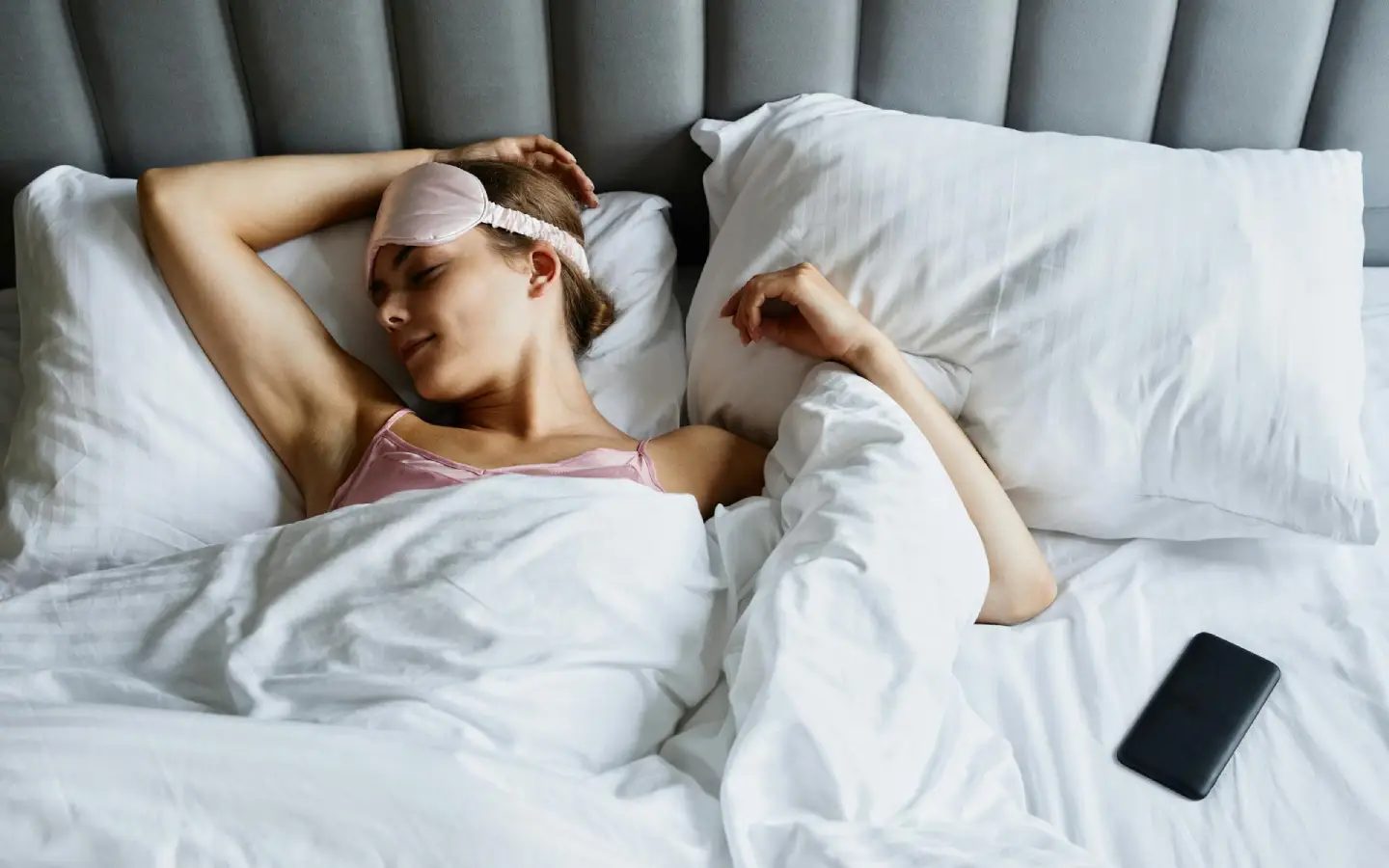August 24, 2025
What Is Sleep Inertia and Why It Causes Morning Grogginess
You probably experienced sleep inertia before, but you didn’t know its name.
By definition, inertia is the tendency of an object to resist changes in its state of motion. This means an object at rest will stay at rest, and an object in motion will stay in motion. When we talk about sleep inertia, this translates into someone waking up, but the brain is still resisting the wakefulness. Parts of it remain in a “resting” state, leaving a person sluggish, disoriented, and slower to think or react.
What Is Sleep Inertia?
Sleep inertia is best defined as the transitional state between sleep and wake where you feel impaired, either cognitively or in your motor skills. According to Sleep Medicine Reviews, people who struggle with sleep inertia will find themselves not being fully aware immediately upon waking. Most of these people describe sleep inertia as “grogginess” which can last anywhere from 15 minutes to, in some cases, up to two hours.
Sleep Inertia Symptoms

After grogginess, common sleep inertia symptoms include problems with memory, focus, logical thinking, and decision-making. They are most noticeable after longer-than-usual sleep or after naps lasting more than 30 minutes.
Who is Most Affected by Sleep Inertia?
Anyone can experience sleep inertia, but by the nature of their lifestyle and career, certain groups deal with it more often than others.
Shift workers
People who work rotating or overnight shifts are more prone to sleep inertia. Their work forces them onto a schedule where night becomes day and day becomes night, which means their body clock is out of sync with their work schedule.
Healthcare and Emergency Workers
Doctors, nurses, firefighters, and other on-call professionals may need to respond right after waking.
Sleep inertia in these moments can be especially risky, since even a few minutes of reduced alertness and slower motor performance can affect decision-making, attention, and reaction speed.
Individuals Waking From Deep Sleep
Sleep inertia is strongest when a person wakes up from slow-wave sleep or N3, which is the deepest stage of non-REM sleep. Upon waking up from deep sleep, the brain needs extra time to reach full alertness, which explains feeling heavy and disoriented. This is what happens to most people who wake up to an alarm clock.
People With Sleep Disorders
Sleep disorders like insomnia, sleep apnea, or narcolepsy are known to disrupt normal sleep cycles and the ability to move smoothly through different sleep stages. Those who struggle with these conditions are more likely to wake up during deep sleep and then struggle with prolonged grogginess or sleep inertia.
Students and Young Adults
In young adults, especially students, sleep inertia can be experienced on a regular basis. This is mostly due to irregular bedtimes, late-night studying, or early morning classes mean students often wake before their body is ready. Some people started drinking coffee to get rid of sleep inertia, but does caffeine really help?
How To Get Rid of Sleep Inertia

The thing about sleep inertia is that there is no switch to just “turn it off” in the moment. What you can do is help reset the natural process of waking up.
Sunlight or Light Therapy
One of the strongest “wake up” signals for the brain is exposure to light. Sunlight in particular suppresses melatonin in the morning, helping you feel more alert. If you do not have access to sunlight in the morning, a light therapy lamp (also known as sun lamp or SAD lamp) can do the trick. Red light in particular has been shown to increase alertness without messing up the natural melatonin rhythms.
We go into more detail about red light in our blog post about an ideal bedroom environment for sleep, so you may want to save that for later.
Movement and Exercise
The next way to get rid of sleep inertia requires some form of physical activity, such as doing medium to high intensity exercises to speed up circulation and help signal the body that it’s time to be alert. Research shows that exercise can reduce the effects of sleep inertia, with high-intensity activity showing the strongest results. The exact timing and type of exercise still matter, but getting the body moving soon after waking appears to be one of the more effective ways to shake off grogginess.
Drinking Water
After a night without drinking water, the body is slightly dehydrated. While no studies directly test water against sleep inertia, even mild dehydration is known to impair cognition and mental performance, as shown in a 2016 study.
Starting your day with a glass of water is a low-effort step that everyone can do.
Caffeine, If Used Wisely
Caffeine can help ease sleep inertia because it blocks adenosine, the chemical in the brain that builds up sleep pressure and makes you feel drowsy. It reaches peak levels in the blood about 30-60 minutes after drinking it, so the effect won’t be instant.
A cup of coffee 20-40 minutes after waking can help you feel more alert and reduce grogginess. Just keep in mind that caffeine has a half-life of 3-7 hours, so drinking it too late in the day can interfere with nighttime sleep.
Following a Morning Routine
Having (and following) a morning routine gives structure to your mornings, and that’s what your brain likes. Going through a predictable set of morning activities helps train the brain to move from sleep to alertness more naturally, even if you wake up a bit earlier or later than usual.
[CTA_INSERT]
The Best Sleep Inertia Treatment Is Improving Sleep Quality
The most effective way to avoid sleep inertia is to improve your overall sleep quality. Then you’re less likely to wake at the wrong time or in the wrong state.
Protect Your Sleep Cycles
When you sleep for less time than your body needs, you're more likely to be awakened during deep sleep, which is the stage where sleep inertia is most pronounced. Seven to nine hours is generally how much time the body needs to complete four to six full cycles each night and finish those deeper stages naturally. A cycle usually lasts 70-110 minutes, though the exact length varies by person.
Sleep trackers such as Oura ring, Whoop, and other popular wearables can provide a close estimate of how much deep or REM sleep you’re getting each night, but protecting your sleep cycles and having a restorative sleep matters far more than the numbers.
Improve Your Sleep Environment
Interrupted or fragmented sleep increases the chance of waking up groggy, even if total hours look fine. To prevent this, make sure your bedroom is cool, dark, and quiet, as this helps you stay asleep and finish cycles properly. Use blackout curtains to block light from outside, and find a comfortable mattress and pillow. Your bedroom environment can be the difference between waking from light sleep and waking from deep sleep inertia.
Manage Stress Before Bed
Calming activities like reading, light stretching, or breathing exercises help bring stress down before bed and make it less likely you’ll be pulled out of restorative deep sleep, making it less likely you will wake up groggy. Now, what about aromatherapy for sleep?
Can Kimba Help With Sleep Inertia?

Sometimes good habits are not enough. Even with the best intentions, the nervous system can stay on alert at night. Stress, racing thoughts, and small disruptions can prevent your brain from moving smoothly through the stages of sleep.
This is how Kimba can help.
Real-Time Scent Therapy
Unlike traditional diffusers that release fragrance on a timer, Kimba offers a more personalized scent therapy. It connects to your wearable, monitors biometric signals like heart rate and restlessness, and releases calming scent pulses when your body shows signs of stress or disruption. The result is a nervous system that feels calmer, safer, and more able to stay in deep and restorative sleep.
Clinically Tested Scent Blends
Kimba’s scents are developed with input from neuroscientists and olfactory researchers. They are designed to work with the limbic system, the part of the brain that processes stress, emotions, and safety signals. Because scent travels directly to the limbic system, the calming effect is fast and powerful.
Kimba scents are 100% natural, from ethically sourced ingredients, and clinically tested to support sleep.
Preventing the Worst Kind of Inertia
Since sleep inertia is strongest when you wake from deep sleep, Kimba may help by reducing unnecessary awakenings during these stages. By keeping your nervous system stable, you are less likely to be pulled out of deep sleep at the wrong time.
Works Alongside Other Sleep Strategies
Kimba is not meant to replace medical treatments or structured therapies like CBT-I for chronic insomnia. Instead, it complements them. Kimba is for people dealing with fragmented sleep, mild sleep disorders, or just the everyday stress that interrupts rest.
Join the Kimba waitlist and be the first to know when it is available!
What To Remember
Sleep inertia is a natural part of waking, but it becomes disruptive when it is intense or long-lasting. Its main causes include waking from deep sleep, irregular schedules, and fragmented or poor-quality sleep. While you cannot eliminate inertia completely, you can reduce it with light, movement, hydration, and smart caffeine use.
The long-term solution lies in protecting your sleep cycles, creating a healthy environment, and supporting your nervous system. This is exactly where Kimba makes a difference.
By combining use of wearables for biometric tracking and scent therapy that engages the limbic system, Kimba helps you reach and stay in deeper sleep for longer, and by avoiding unnecessary awakenings, you are less likely to experience sleep inertia.


Continue reading

Shift Work Sleep Disorder and How To Fix Poor Sleep Quality



